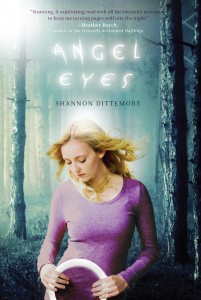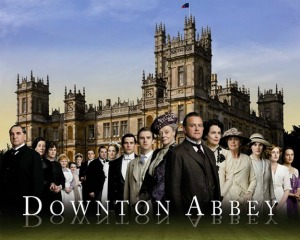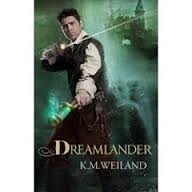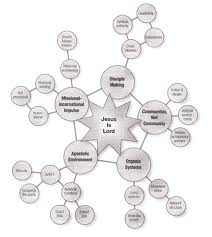
by Jason Joyner | Jan 23, 2013 | Angel Eyes, Blog, CSFF, human trafficking, Shannon Dittemore, speculative fiction, young adult
 Today’s our wrap-up day for the excellent supernatural debut of Angel Eyes by Shannon Dittemore.
Today’s our wrap-up day for the excellent supernatural debut of Angel Eyes by Shannon Dittemore.
I introduced the book on Monday and Tuesday did a quasi-review while doing a compare/contrast with the Twilight books to which Shannon’s book has been compared. I planned to do my review today, but I jumped the gun yesterday.
So I’m going to do something I’m usually loathe to do.
Angel Eyes is about the teen Brielle learning about a wider world and her special gift that is both a blessing and something that makes her a target. However, there is a sub-plot in the book that touches on an issue near to my heart. I don’t like to give spoilers, but here is a minor one: Brielle and Jake stumble upon a human trafficking ring.
The tragedy of human trafficking is coming up more often than ever in fiction. I am very glad for this, since it is such a horror and needs to be defeated. In my own work in progress it is an integral part of the story. I wish I would have finished it sooner, but I’ll get there someday. Whereas my story is set in Southeast Asia, Shannon keeps hers in the Pacific Northwest.
Guess what? Human trafficking exists all over. It is in the States, not just an overseas problem.
If a story can bring awareness to a terrible crime like human trafficking and still be entertaining, it is a powerful tool. Shannon’s done that here, and I’m very appreciative of her book. Not just because of the enjoyment factor, which I definitely enjoyed it, but because the more light that is shown on the darkness of modern-day slavery, the more it will retreat.
There are many fine organizations who are doing specific things to battle human trafficking, some that I’ve linked to in the sidebar to the right. Shannon offers up Chabdai at the end of Angel Wings, so I’ll point you there as well for more information. Please take a few minutes to become informed about this if you haven’t already.
Shannon has won a major fan here. I’ll be excited to read her next book, Broken Wings, which comes out next month. My preferred genre isn’t YA romance (even with the supernatural twist) and I’m focusing on reading suspense nowadays for my own writing, but I’ll make an exception here.
That’s all I have for this fine book and interesting tour. As always, Becky Miller keeps tabs of all of the participants on her blog. Check them out.
—
Disclaimer: I received a free copy in exchange for an honest opinion. So there.
—

by Jason Joyner | Jan 22, 2013 | Angel Eyes, Angels watching over me, Blog, CSFF, not Twilight, reviews, Shannon Dittemore, speculative fiction, young adult
Is Angel Eyes the Christian version of Twilight?
I hope that sentence doesn’t scare anyone off! I aim to explain.
Becky Miller addresses somewhat the idea of the similarity between
Angel Eyes and
Twilight. Both books feature a wounded girl moving to be with a single father in a rural area, and both girls end up meeting a mysterious guy who is also very good looking and intrigued with said female. Becky was surprised about the comparison.
I wasn’t.
Because I *ahem* read the Twilight series.
Okay, I guess I will hand over my man card.
Won’t be the first time. I was bored and had a lot of time to read that year. But I digress.
The trick is that anytime there are similarities, people are going to call it. And in the Christian market, where we do have a reputation (often deserved, but not always) of copying a trend or style in the mainstream market, it is going to come fast and furious.
So here’s a main difference:
Angel Eyes is way better.
I kept reading Twilight because I did like Stephenie Meyer’s voice. But aside from the questions the plot offers, her writing needs some severe editing. I’m not sure I could read it again after four more years of studying writing under my belt. Meyer gets too thick with her description, going on and on about how perfect Edward is.
Dittemore hits the right notes. Sure, there are points where someone who’s read both will see comparisons. I don’t think it was intentional.
There’s nothing new under the sun, remember. Her Brielle is not a whiny wimp that doesn’t feel good unless she’s around her hunk, and even then she’s a bummer. Brielle is damaged, like any good fiction character. There’s issues that create conflict, but they don’t drag her into a quagmire of blah.
The book has great description. For instance, in the book Brielle is always cold. She can’t get warm. It is a plot point, and it has to be repeated a lot. To me an idea that gets repeated over and over can really bog down a book if it is done poorly. Dittemore reminds us enough about this particular detail without being overly repetitive or boring us with the same words.
Another similarity is the attraction between Brielle and the mysterious guy, Jake. Now, I probably wouldn’t have used the name “Jake” (Jacob the shirtless werewolf, anyone?), but there is no love triangle in this book. There’s no sparkly vegetarian vampires. I repeat, NO SPARKLES. One criticism of the book I have is that Jake is sometimes too good – he doesn’t seem to be a fully three dimensional character. But again, the comparison between the romance is superficial.
Ultimately, this is a Christian novel. It deals with faith, doubt, suffering, and other real world issues in a touching and believable way. Believable considering a girl can see the supernatural and there are angels and demons. But the angels know their place. They serve the Lord Almighty, and that is brought out in the book in a very strong way. Not preachy, but it isn’t hidden either.
So, I do not believe Angel Eyes is the Christian Twilight. It stands on its own, with some shared conventions since they are both YA, both romance, and both supernatural in nature. But I would not hesitate to recommend Angel Eyes to a young woman who likes to read or anyone who enjoys speculative fiction. Which I would hesitate with Twilight with some people.
Well, shoot Becky. You forced my hand early. I’m going to have to get creative for tomorrow’s post. In the meantime, Becky keeps a tab of all of the posts for this tour, so
check them out for more opinions and info.
—

by Jason Joyner | Jan 21, 2013 | Angel Eyes, Blog, CSFF, Shannon Dittemore, speculative fiction, young adult
What do you think you could see if you could see into the angelic realm?
Good for us that’s the job of speculative fiction authors, and that Shannon Dittemore took up the challenge.
The latest feature for the Christian Sci-fi and Fantasy Tour is the debut book by Ms. Dittemore, Angel Eyes. It is a YA novel and the first of a trilogy of books, with the next book Broken Wings coming out in February and the final book Dark Halo releasing in August.
Brielle is a young woman with a devastated heart and an inability to get warm. She returns to small Stratus, Oregon after a tragedy that causes her to give up on her elite performing school in Portland. Her heart is as frozen as the weather in the rural town, but when she catches the attention of the new, hot guy in town, she doesn’t know what to think.
Especially when she starts seeing the supernatural.
Brielle enters a strange new world that the new guy, Jake, seems to know a lot about. Her new sight opens up new horizons, and a new perspective on evil-an evil that wants to use her in their latest schemes.
Now Jake and Brielle may be all that stands between a loss of innocence and a horror beyond imagining, if they can survive the encounter themselves.
This book has gotten a lot of buzz, so it is exciting to be featuring it for our January tour. Check out my tourmates below for more information, and I’ll have a review and more discussion in the next two days.
Gillian Adams
Julie Bihn
Beckie Burnham
Theresa Dunlap
Nikole Hahn
Jeremy Harder
Carol Keen
Emileigh Latham
Shannon McDermott
Meagan @ Blooming with Books
Rebecca LuElla Miller
Anna Mittower
Faye Oygard
Nathan Reimer
Chawna Schroeder
Jessica Thomas
Rachel Starr Thomson
Steve Trower
Dona Watson
Shane Werlinger
Phyllis Wheeler
—

by Jason Joyner | Jan 9, 2013 | Blog, Downton Abbey, links, writing craft, Writing Wednesday
Welcome to Writing Wednesday.
Today I was going to write an inspired post. Then I saw this awesome article on Copyblogger by Matthew Gartland.
 Then I said screw it.
Then I said screw it.
Leave here and go read that article. It talks about what I wanted to in a much better way, and it tied it into the marvelous Downton Abbey. Seriously. Whether you’re a copy writer, a novelist, or some other content creator, that article is boss.
That reminds me, I still haven’t seen the Season 3 opening yet. No spoilers please!
Thanks to Rachelle Gardner for tweeting that article out.

by Jason Joyner | Jan 7, 2013 | Alan Hirsch, Blog, books, Christianity, Mission Monday, missional, organic church, The Forgotten Ways
 In my last post, I shared my favorite fiction books from 2012. Fiction books can be very influential as well, but there was one non-fiction book that helped with a paradigm shift in how I thought about church and its mission.
In my last post, I shared my favorite fiction books from 2012. Fiction books can be very influential as well, but there was one non-fiction book that helped with a paradigm shift in how I thought about church and its mission.
The Forgotten Ways: Reactivating The Missional Church by Alan Hirsch was recommended to me over a year ago by my friend and former pastor Brian Harrison. I didn’t read it until this year when my friends and I started into our Outreach Saga. A group of us had left our former church and were looking into what God had for us.
As we started to meet together and tried to hear from the Lord each week, I was also reading this book. It truly opened my eyes to ideas that I hadn’t considered in a fleshed out manner before. Sure, through intuition and talking with other people I had touched on ideas from The Forgotten Ways but I wasn’t getting the full picture.
Hirsch discusses how the model of Christendom we operate in nowadays in modern evangelical culture (for the most part) is not necessarily how the early church (up to 300 AD) did things. From 300 AD to now the church developed hierarchy and structure that was adopted from Roman systems. They worked in a Christian culture context of Europe in the Dark and Middle Ages, even through the Renaissance and Reformation. However, now that our culture is post-Christian and pluralistic, it cannot meet the changing forces in the world in an adequate way.
The majority of the book describes his theory on how church should operate. Through the complex diagram to the right, he shows how the church needs to function. Stemming from the Lordship of Jesus are the five hubs that continue to expand out and encompass the life of a Christian and the community of believers.
Hirsch has worked in missional fields for a long time and has spent a lot of effort into this study. From the Biblical basis to historical activity and modern theory involving organic systems, he brings a thorough and convincing argument for the need to discover forgotten ways and to fully reactivate the life believers need to have today to fully reach the people out there.
In writing this post I am not doing the book justice in a short summation. Perhaps my testimony will help spell it out. As I read the book, I realized that as we tried to reach out to a needy sub-group in our community, we needed to be willing to risk and try new things in order to touch the people. Instead of being a controlled environment where one person (the pastor) speaks and runs the meeting, we’re developing a time of sharing with each other from the Word and our own testimonies. In this way everyone in the meeting has the potential to share something that another person may desperately need. I know I don’t have all the answers in life – that I don’t have the exclusive on God. In relying on the body of Christ to be the body, I’ve seen the strength it brings by allowing others the opportunity to step up when they have what is needed at the time.
I had a reawakening through reading this book and studying Scripture alongside it. I haven’t had a book challenge me like this in many years. It is an easy choice for me to recommend it to anyone who’s wondering if there are better ways of doing “church.” There are better ways, but we’ve just built human structures onto things that should be organic and not just formed into boxes. For an introduction into this, I can’t do better except to highly suggest reading The Forgotten Ways and seeing if it speaks of His truth and the reality of the world today. I think it does both.
So here’s to 2013. May there be many excellent books in your future, and may you dare to take a risk for Jesus in your life in the coming year.
—

by Jason Joyner | Jan 2, 2013 | best of 2012, Blog, reviews, Writing Wednesday
 Hello 2013.
Hello 2013.
I must confess, so far you look a lot like 2012 – except you’re a lot colder. Minus 11 degrees Fahrenheit when I got to work today? Ouch.
I wonder what books will come from you. It’s always cool to look back and see just what I’ve read and what tickled my fancy.
But it’s still 2012’s turn. For such a crazy year I’m impressed I can remember one book I’ve read. Thankfully, book blogging and using Goodreads is helping. So here are my favorite books* from last year.
5. The Adoration of Jenna Fox by Mary E. Pearson. The first book I blogged about in 2012 stuck with me throughout the year. From the eye-catching cover to the intriguing premise and suspenseful examination of medical ethics, it was a striking book to me. It’s listed as a teen book, but I enjoyed it nonetheless, even if the first few chapters took a little getting used to, as the author used an interesting layout and chapter structure in the early going.
4. The Spirit Well by Stephen Lawhead. The CSFF Blog Tour is always a highlight to me, and one of the benefits has been to read many of Stephen Lawhead’s recent books. His writing skill is remarkable, and he seems to be avoiding the consistency issue I felt he had in earlier series. The Bright Empires series is an ambitious project delving into the multiverse and the price of coffee in 1600’s Vienna (seriously). The Spirit Well is the third in the series and holds the storyline solid as the midway tentpole.
3. Dreamlander by K.M. Weiland. A friend put me in touch with Ms. Weiland, who was looking for some advanced readers of her latest fantasy. I’ve enjoyed her writing advice site through the year, so I thought it would be a good opportunity to see if the rubber met the road. I was very pleased with the idea of a person living in a dream world while they slept. It’s been done before, but she did it with style and substance.
2. Proof by Jordyn Redwood. I really enjoyed the debut novel by Jordyn. A pediatric ER nurse by day, she has been offering her medical advice blog Redwood’s Medical Edge as a service to writers for a few years. She also proved her writing chops with a thrill ride of a medical mystery. I had the pleasure of meeting her at the ACFW Conference in Dallas, but I had already read her book and enjoyed the page-turner. Looking forward to number 2 in her Bloodlines trilogy coming out soon.
1. Rare Earth by Davis Bunn. I had read a book by Mr. Dunn a long time ago but lost track of him. He kept churning out books, and I picked up Rare Earth for another blog tour this summer. Finally it gave me a template in the CBA publishing realm for my project – an international suspense with heart. He wrote a thrilling book that opened up eyes to problems in the real world of displaced people, but did it with dignity and a very enjoyable read.
*My only caveat is that these are my favorite fiction books of 2012. Out of the non-fiction books that I read, there is one that made the biggest impact on me last year. But you’ll have to wait for Mission Monday for that one.
—
How about you? What were your favorite books from 2012?
—

by Jason Joyner | Dec 20, 2012 | authors, Blog, meme me, writing craft, Writing Wednesday
It’s time for a little fun. My friend Nicole Petrino-Salter tagged me for a blog meme. Whoo-hoo! It’s nice to be recognized and invited to play. So here it goes.
“The Next Big Thing”
1. What is the title of your next book/work?
My next book is my current book – Darkness Under The Moonlight. I’ve finished the first draft, but it’s under revision so it’s not quite done and still “next” in my mind. I did just have a cool idea for a sci-fi/medical thriller, but it is definitely in the gestational stage.
2. Where did the idea come from for the book/work?
My sick mind? I’m not sure what I was doing, but I had the picture of a body floating in the ocean, discovered by a fisherman hitting it with his boat. Who was the victim? Why did he die?
3. What genre does your book/work fall under?
Mystery/Suspense/Thriller. I guess there are differences – I’m trying to figure out where it fits exactly.
 |
| Camilla’s ready to go. |
4. What actors would you choose to play the part of your characters in a movie rendition?
Jenna Dawson – I need an athletic person for the role. Right now I’m thinking Camilla Luddington or Alex Schlereth.
Derek Stephens – I’m not sure on this one. Perhaps Armie Hammer, just a little less on the leading man looks.
5. What is a one-sentence synopsis of your book?
A medical student travels to Thailand to discover the mystery behind the death of her missionary brother.
6. Will your book be self-published or represented by an agency?
I’m going to shoot for an agency. If it gets good feedback but the market isn’t favorable, I would consider self-publishing.
7. How long did it take you to write the first draft of the manuscript?
*cough*Seven years, next question*cough*
8. What other books would you compare this story to within your genre?
I’d love to be compared to Davis Bunn’s Rare Earth due to the exotic local and human element. If I could approach his level of writing skill, all the better.
9. Who or what inspired you to write this book?
I had recently gotten back into the hobby of creative writing and I had the images that were the genesis of the story. I fiddled around with it until I hit on the theme of human trafficking. With that issue at the heart, even though I got discouraged at times, I knew it was something important to finish.
10. What else about the book might pique the reader’s interest?
I’m trying to blend international intrigue, medical suspense, and a heart-grabbing current issue into something readers will enjoy.
Now I’m tagging John Otte, Emileigh Latham, and Morgan Busse, to play. Okay?
—
by Jason Joyner | Dec 17, 2012 | Blog, Jesus, links, Mission Monday, missional, organic church, resources
Hey all. Mission Monday has taken a hit the last few weeks due to schedule issues. I’ve got some resources for people today.
This year has thrown a group of us into a wild adventure with God. A small group of us separated from our previous church and came together to see what the Lord had for us. Through this we started meeting at a local park to reach out to a nearby apartment complex, and thus the Outreach Saga was born.
I’ve been spending time on the internet looking for resources to help us understand this journey and the new way we feel Jesus is leading us. We’ve stumbled by accident into a way of doing things that has been called organic church or simple church. We’ve gained a heart to really see people discipled in Kingdom ways. So here are some resources that I’ve found to be helpful in our six-month adventure.
Alan Knox is a PhD student in theology who writes very gracious but challenging posts on New Testament practice and how it relates to modern church practice.
Frank Viola is a prolific author. He has written numerous books and keeps up a daily blog. He’s written a lot about organic church but has moved to a fuller study of the person of Jesus. His book, Jesus: A Theography is on my Christmas wish list.
A book recommended to me a year ago became very helpful when we started this summer – The Forgotten Ways by Alan Hirsch. It is a thoughtful challenge to the body of Christ and a book that I would highly recommend.
I’ve followed CMA Resources on Twitter and found many encouraging links and articles posted through their work. They have a whole training setup there for people interested in organic church.
Neil Cole is associated with CMA Resources and is another frequent author passionate about organic church and seeing multiplication of disciples. His book Church 3.0 was another intriguing read with some practical advice for those investigating this way of doing church.
The Verge Network has a subscription required for premium content, which I haven’t done yet. Still, there have been free videos released from the likes of Francis Chan and Neil Cole that have been challenging and exhorting for the church to really reach out.
I’ve begun to pay attention to the blog Church In A Circle. Would it be better for the body to interact in a circle than with one person in front speaking to a bunch of rows? That question and more on organic church is discussed here.
There’s a wealth of wisdom and insight above. I hope if any are curious about what we’ve doing will check some of those out. I believe God can use any church for His purpose, from a traditional style of meeting to one that meets in a park with a free-flowing format. It is up to us to be sensitive to what the Holy Spirit is saying to us and be willing to take risks for our Lord Jesus. That’s my prayer for all of us in the coming year.
Hope this helps!
If you have any feedback on this, please share below!
—

by Jason Joyner | Dec 12, 2012 | Biblical worldview, Blog, CBA, christian fiction, Christian marketplace, Marcher Lord Press, speculative fiction, Writing Wednesday
Now this is interesting…
There was a very interesting confluence of circumstances in the world of Christian or CBA fiction this week. First of all, I am a member of the American Christian Fiction Writers (ACFW) and I subscribe to the main email loop for discussion of issues in Christian fiction. I haven’t been following it for a while, but this week I happened to open up my digest and there was an interesting (if not new) discussion.
How “Christian” should our stories be?
Larry Timm started the discussion with this question on his blog and he threw it out to the ACFW loop as well. Both the comments on Larry’s post and the answers on the email loop were enlightening.
The answers varied, for sure. Some thought that Christian novels should explicitly glorify Jesus in some way. Being a sweet romance without profanity or sex wasn’t enough. Some answers thought there should be some lesson or purpose in the story. Others wondered if their stories could be considered Christian if there wasn’t a path to redemption/salvation shown clearly in the text. There was concern that the message may be watered down in the current climate to appeal to wider audiences.
Is it enough if the worldview Christian, if the characters are Christians and live, make mistakes, and learn from their sin, without preaching it to the reader? Is there a place for good, clean fun, or do they all have to change our lives somehow? I liked what Randy Ingermanson said, something to the effect that we’re called to be salt, but people like different levels of saltiness in their soup.
The consensus seemed to move toward different stories for different folks. Authors may be called to tell stories with the themes veiled or more subtle, while others may want to specifically deal with a theological/moral topic. People were respectful. It is an old debate in the CBA world, and it will continue to recycle as long as we continue to write.

What made the timing interesting to me was the introduction this week of…
The Hinterlands.
Marcher Lord Press has developed a significant niche in the CBA world as the go-to place for Christian speculative fiction. Other publishers will produce some science fiction or fantasy, but no one sells out for it like MLP.
Now they are ready to push the boundaries – figuratively and literally, it seems.
Hinterlands is the new MLP imprint for mature fantasy and sci-fi. It is designed to reach out to people who love secular fantasy/sci-fi but wouldn’t pick up a typical Christian novel. The first book is called A Throne Of Bones by Vox Day, and it is specifically targeted to be for fans of epic fantasy such as George R. R. Martin and his Game Of Thrones series.
According to an article in Christian Retailing, Hinterlands will feature books with content that does not always mesh with traditional CBA fare.
“Just as some Christians have the ability to watch R-rated movies without stumbling and others do not, so it will be with A Throne of Bones and other titles to come in the Hinterlands line,” [Jeff Gerke] said.
MLP’s owner and publisher Jeff Gerke went on to say,
“It’s not going to be erotica, and the characters aren’t going to be dropping f-bombs left and right,” he said. “But these books will still have more mature content than other Christian novels. Having these books in their own imprint will allow our fans to find the Marcher Lord Press books they’re interested in and avoid the ones they would rather avoid.”
“Hinterlands books may contain vulgarity, profanity, nudity and/or sexual content, but never for gratuitous purposes. Hinterlands allows us to pursue crossover publishing that will put the word of the gospel before people who would never otherwise pick up a Christian novel. It also allows us to examine mature themes in a realistic manner that some Christians will appreciate. We know that not everyone will want to read these books, so we have set them apart into the Hinterlands imprint.”
So we have two separate streams in the CBA realm that may be flowing in parallel, or depending on your viewpoint, moving far away from each other.
One side sees Christian fiction as standing apart from the world. Generally this group sees Christian fiction through the lens of Philippians 4:8, wants to see a clear story of redemption or salvation, and hews to an evangelical Christian framework.
Hinterlands is new ground that is trying to engage the world in realistic ways. This imprint could be the publishing home for stories from the Bible like Judges, Genesis 34 or 38, or be a realistic portrayal of life of King David. It sounds like they will take great care to avoid gratiutous use of profanity, violence, or sexual situations, but they won’t avoid it wholesale if the story seems to require it.
I am very interested in seeing how this plays out. Can MLP succeed in this bold initiative with Hinterlands? Is there room for Christians producing this type of literature? At least, is there room in the CBA world? With the new world of the internet and social media, perhaps the old forms of marketing and distribution aren’t needed anymore, and a niche like Hinterlands can succeed and reach people.
Can we reach people with gritty stories? This question has been debated in the CBA for a while now. I guess we’ll be finding out with Hinterlands.
—
What do you think? I’ve got my opinions for a later post, but I want to hear from authors and readers of Christian fiction and speculative fiction. What is Christian fiction, and is there room for Hinterlands-type books in it?
—

by Jason Joyner | Dec 6, 2012 | Blog, Dreamlander, fantasy, KM Weiland, reviews, speculative fiction, Writing Wednesday
 What happens when you dream?
What happens when you dream?
This question has made men wonder for millenia. Leave it to a woman to answer it for us all.
Author K.M. Weiland of the popular Wordplay blog for writers has taken this idea and weaved it into her latest fantasy book Dreamlander.
Chris Redston is a down on his luck writer who has always dreamt of far away lands and amazing battles. Lately he’s having a dream that scares him: a beautiful woman rides up to him on a horse, pulls out a firearm, and warns him not to come – right before shooting him between the eyes.
If that didn’t make him paranoid, he’s being called by a strange man who knows Chris is having weird dreams. When Chris is finally able to confront his stalker, the man is shot. Chris is knocked out and awakens to meet a psychologist who promises to help Chris get rid of the dreams. All he needs to do is sleep, do what he’s told in the dream, and it will break the cycle.
Allara is a princess of Lael and is also the Searcher – the one person tasked with finding the Gifted and guiding them through their world. The Gifted is the one person who can remember both lives on Earth and Lael. Everyone else thinks they are dreaming. Allara was a young girl when a Gifted came to Lael and betrayed everyone for the treacherous Mactalde. Even though that Gifted and Mactalde were killed, the prophecy that Mactalde would return has her on edge. Especially now that a new Gifted is about to cross over, which shouldn’t happen again in her lifetime as most Searchers only ever have one Gifted a generation. She tries to warn him away, but he keeps appearing closer and closer to fulling coming over.
Chris didn’t realize that the psychologist was Mactalde still living on Earth. Chris unwittingly brings Mactalde back over, sparking a war between Lael and Mactalde’s army. Even worse, by bringing someone across the boundary, both worlds are stretched to the breaking point by unusual storms wreaking havoc on both sides.
As Chris and Allara are thrown together, they must overcome her mistrust and his cluelessness about their world to find Mactalde and end the chaos before two worlds crash down. But the shifting alliances and strange ways of Lael may prove too much for even the Gifted to handle.
—
An epic fantasy needs a strong plot, a deep world, and compelling characters. Dreamlander has all three aspects in full force here. The fish-out-of-water part of the story with Chris trying to survive and deal with a fantasy realm is not new, but it is handled deftly in the author’s hands. The tension builds steadily on both sides of the dream as Chris tries to avoid death on Earth and trains in Lael. There is no dull moment as every part of the steps taken pull the reader deeper into a grand conflict.
Chris and Allara are appealing characters that battle internal demons along with the dangers that Mactalde’s invasion brings. They both grow and develop throughout the story and anchor the story well. The secondary characters are also well done. Instead of being cardboard place holders, they are all 3-D figures that occupy their own space in the story and add to the mix.
The fantasy world of Lael is an intriguing one, as it isn’t all swords and horses. Those elements are there of course, but this world has some mechanical, almost steampunk type elements. There are tram cars enabling quick travel across lands and fantastical firearms that operate with a special energy. These are cool factors that make Dreamlander stand apart from a typical fantasy.
I’ve enjoyed following K.M. Weiland’s blog posts for writerly advice and videos. Now reading Dreamlander I know she has the skill and talent to back up her training. She doesn’t just teach – she can ply the craft as well. I really enjoyed Dreamlander as one of the best fantasy books I’ve read in a while, and I can highly recommend it for a great Christmas gift for a loved one – or even a treat for yourself.
Full disclosure – I did receive an advance review copy in exchange for an honest review – and I wouldn’t be writing this if I didn’t really like it.
—

 Today’s our wrap-up day for the excellent supernatural debut of Angel Eyes by Shannon Dittemore.
Today’s our wrap-up day for the excellent supernatural debut of Angel Eyes by Shannon Dittemore.







